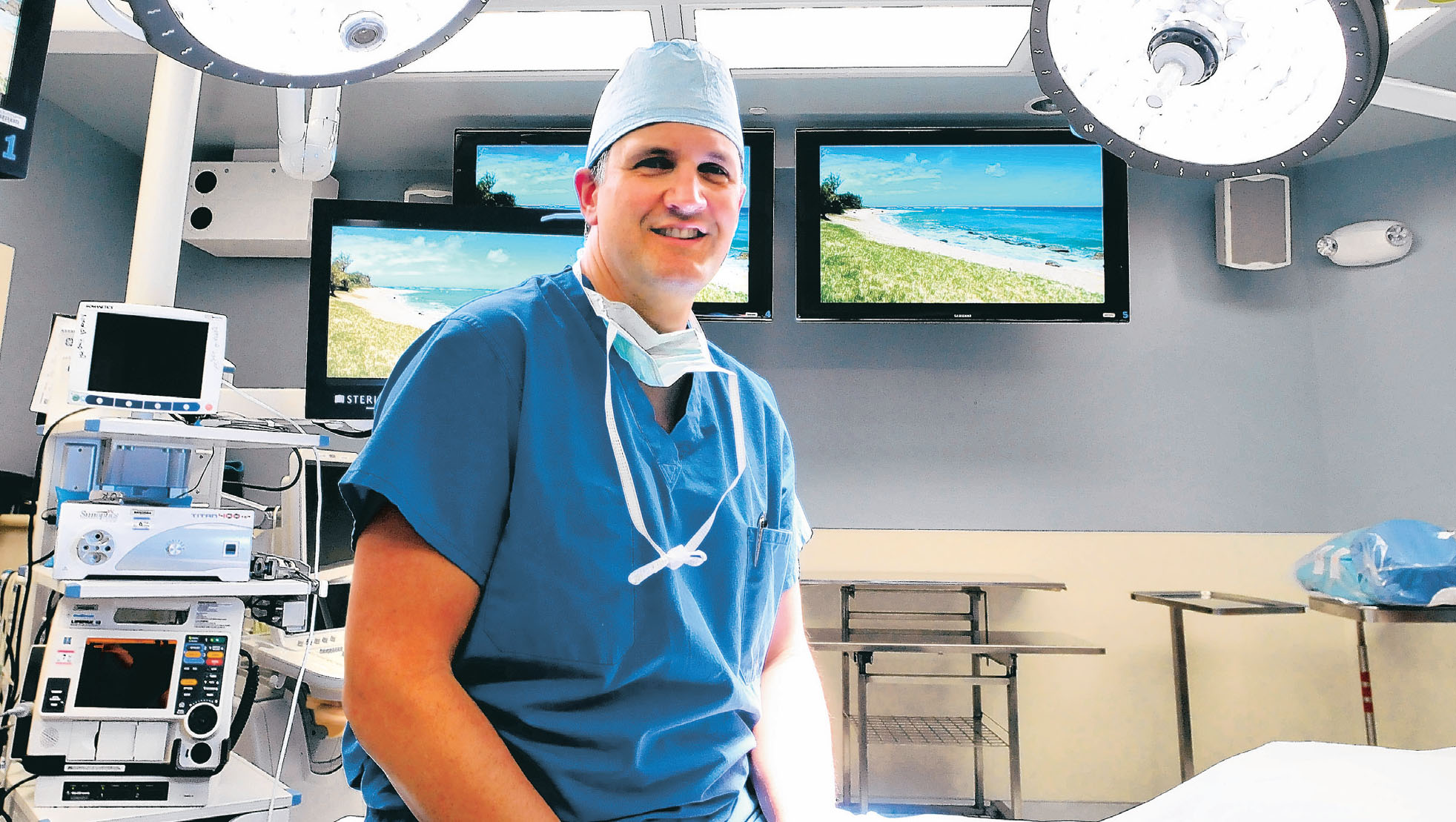Growing up in Chattanooga, Dr. Robert Headrick never thought he'd become an environmentalist. Nor did he plan to focus his medical practice on lung disease.
But after moving back to the Scenic City in 2000, Headrick noticed a huge void of physicians concentrating on lung problems, as well as a vast number of older patients unable to breathe well - perhaps remnants from Chattanooga's days as America's dirtiest city.
"Historically, lung disease has been seen as a dirty disease - something that somebody did to themselves," says Headrick.
"But approximately 20 percent of lung cancer patients have never smoked. Science is not entirely sure why that is, but you can't deny that the air we're breathing has an impact on overall lung health."
This was particularly true in the late 1960s when a thick, black cloud hovered over Chattanooga. During this time downtown businessmen kept spare white shirts in their office because of their sooty commute, and the mountains were often shrouded in a thick haze, rarely visible from downtown. While the Scenic City has made great strides, there is still much work ahead, notes Headrick.
According to the American Lung Association (ALA), Hamilton County received an "F" in ozone and a "D" in particle pollution in 2010. We're not alone. The study - part of ALA's Fight for Air campaign - found that nearly 60 percent of Americans live with dangerous pollution levels. Our neighbors, Knoxville, Birmingham and Atlanta all made the Top 25 Dirtiest Cities list. Chattanooga wasn't too far behind with 44 orange ozone days, which are unsafe for sensitive groups, and three red ozone days meaning outdoor activity should be limited for everyone.
ALA's findings reveal that air pollution might be even more hazardous than once thought, contributing to higher risks for heart attacks, allergies, premature births and even premature deaths. Still, many doctors argue the benefits of exercise outweigh the risks.
"The notion that jogging outside on bad pollution days will cause lung cancer isn't accurate," says Dr. Michael Czarnecki, pulmonologist at the Chattanooga Outpatient Center. "But those with a history of asthma should be more careful because it will aggravate symptoms."
Whatever the cause, Chattanooga ranks high in incidence of lung disease, particularly asthma. Nationwide, asthma is one of the most prevalent lung diseases, affecting nearly 25 million, and is the leading cause of missed school days. Dr. Marc Cromie of Chattanooga Allergy Clinic says he's seen a dramatic increase in asthma patients in the past 10 years. He's also noticed an up tick of problems during the summer months, historically a quiet time given the low pollen counts. Cromie attributes this rise to increased ozone exposure, noting that during the large mass-transit push of the 1996 summer Olympics Atlanta saw a dramatic drop in asthma-related ER visits. While genetics cause asthma, dirty air exacerbates symptoms and severity.
There are simple steps anyone can take to maintain good lung health such as daily exercise, maintaining a healthy weight, testing your home for radon and not smoking.
Symptoms of a potential problem include shortness of breath, a cough lasting longer than two months, increased sputum, swelling of nails or digital clubbing (nails that curve over fingertips) or cyanosis (blue fingertips). It's recommended that people see their doctors for a yearly pulmonary function test so that any decline in lung function will be detected sooner rather than later, says Czarnecki.
Early detection can be challenging with lung disease since symptoms usually don't show up until the problem is advanced. This is why lung cancer remains the deadliest of cancers, claiming more women than breast cancer and more men than prostate cancer.
According to Headrick, a 10-year national study found that yearly CT scans of at-risk populations had dramatic benefits, even stronger than mammography. This is why he recently lobbied Memorial Hospital to provide the test to those who qualify (smokers for at least 20 years, and over age 55) for $50 - one of the lowest rates in the country.
It's believed that certain people have a genetic predisposition to developing lung disease, making them particularly sensitive to things like air pollution and cigarette smoke. But since scientists can't determine who's predisposed, many people like Headrick want to see the air safe enough for everyone. Until then, he'll continue to do what he can medically.
"I'm just trying to help as many people as I can breathe," he says. "This is where I grew up and this is my way of contributing back in a way I never really thought I would be."

